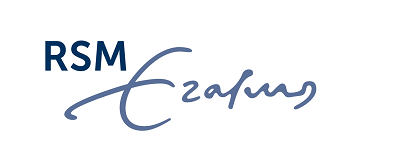- Governance
Why Good People Do Bad Things At Work
The drivers of fraud and steps to reduce the risks are considered by RSM's Professor Muel Kaptein
This year’s global headlines, from LIBOR rate fixing in London to accounting fraud in Tokyo, remind us of the destructive power of fraud. The fact that 87% of manufacturing businesses were affected by fraud in the last 12 months, according to new figures from the Kroll Advisory Solutions Global Fraud Report, is frankly quite alarming.
Of course people behaving badly at work is not new, but the complexity and interconnectedness of modern business can make it ever more devastating; and it is not just the headline cases, for each story that enters the public consciousness there are many more that do not.
There are many damaging forms of bad behaviour that no organization can be immune to. You may not have a Christophe ‘Rockefeller’ Racancourt or a Viktor Lustig on your staff but there is always the possibility that someone will be tempted to defraud the organization in some way. The cover of the Kroll Report says it all: ‘Fraud concerns on the rise globally’ – ‘Information theft remains a serious threat’ – ‘Businesses Struggle with anti-fraud strategies.’ So what can you and your organization do to minimize the risks?
In a recent white-paper Why Good People Sometimes Do Bad Things: 52 Reflections On Ethics At Work, Muel Kaptein a Professor at Rotterdam School of Management considers the behavioural and psychological reasons why people step over the line and what businesses can do to promote a more ethical culture.
He asks what inspired Jeffrey Skilling, the president of Enron, to say shortly before its downfall: “We are doing something special. Magical. It isn’t a job – it is a mission. We are changing the world. We are doing God’s work.” Was he really that deluded? Professor Kaptein provides some extremely valuable insights:
First he sets the context in 8 short introductory chapters:
-
Good or bad by nature? Empathy and sympathy
-
What is my price? Integrity as supply and demand
-
Bagels at work: honesty and dishonesty
-
Egoism versus altruism: the theory of the warm glow and the helping hand
-
What you expect is what you get: the Pygmalion and Golem effects
-
Self-image and behavior: the Galatea effect
-
Self-knowledge and mirages: self-serving biases and the dodo effect
-
Apples, barrels and orchards: dispositional, situational and systemic causes
And then describes a series of critical factors which explain the complex workings of right and wrong in the workplace under six headings:
-
Clarity
-
Role-modeling
-
Achievability
-
Commitment
-
Transparency
-
Openness
-
Enforcement
In his concluding chapter ‘Challenge’, Kaptein says that “In short, challenging oneself and one another is a powerful medicine against bad behavior. In fact, it is a powerful vitamin for a healthy organization and a healthy individual career.”
“Challenge is a matter of confronting important issues in an open, constructive, stimulating manner, in order to open our eyes and ears and those of others. Challenge is about issues which matter to people, at the heart of which are values, norms, and interests. These are issues of right and wrong, responsibility and irresponsibility, moral and immoral.”
About the author - Muel Kaptein is professor of business ethics and integrity management at the Erasmus University of Rotterdam. His research focuses on areas such as measuring and managing integrity in organizations, and he teaches courses in leadership, sustainability, and governance. He is also a partner at KPMG, where together with colleagues, he supports organizations in investigating and improving their integrity, soft controls, fraud risk management, compliance, and sustainability. Muel is author or co-author of several books, has published more than 30 articles in international scientific journals and co-edits the Journal of Business Ethics.
Read the White Paper Why Do Good People Do Bad things: 52 Reflections on Ethics at Work
One of Europe’s leading business schools, and ranked among the top three for research, RSM provides ground-breaking research and education furthering excellence in all aspects of management.
ARTICLES YOU MIGHT LIKE
VIDEO
WEBINAR RECORDING: Prof. Walid Hejazi, Andrea Barrack, and Susan McGeachie explore and debunk some of the enduring myths surrounding ESG
DEVELOPING LEADERS QUARTERLY MAGAZINE AND WEEKLY BRIEFING EMAILS


































